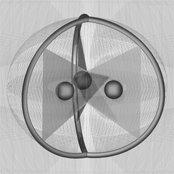




































What is the nature of intelligibility?
In his 1936 paper "Physics and Reality" Albert Einstein wrote, "The very fact that the totality of our sense experiences is such that by means of thinking (...) it can be put in order, this fact is one which leaves us in awe, but which we shall never understand. One may say 'the eternal mystery of the world is its comprehensibility'" (351). Others have paraphrased this as, "The most incomprehensible thing about the Universe is that it is comprehensible." Perhaps Einstein is right—perhaps the fact that intelligible experience occurs at all is a mystery we can never solve—but, like Einstein, we'd be served well to use the mystery to fuel our curiosity to discover what we can comprehend, and that may include an understanding of the ways in which comprehension/intelligibility occurs.
Typically we associate intelligibility with attempts made toward truth, so typically we inquire regarding the nature of intelligibility by seeking truth. Now, some say we live in a "post-truth" world. What does that mean? Can we no longer share common ground upon which conversations and arguments can be based? Do we believe it's impossible to find a standard way, agreeable to by all, for measuring the value of claims? If so, how did we get ourselves in this mess? Could it be that our insistence upon using the term truth to refer exclusively to a possible property of propositions has served to exclude different types of standards, important in different ways? And could the rebellion against truth in statements be an unnecessary backlash against those who've consistently overlooked other important ways that the word truth might be used? Will an adequate common ground upon which fruitful communication can be based need to consist of more than just a shared set of common beliefs that can be stated propositionally? Relatedly, for example, we can identify the difference between a valid and invalid deductive argument, but we also often want to speak of feelings as being valid or invalid. Is that a valid use of the word valid? And, if so, how do we tell the difference in that case? To what standard could we appeal, and would we call it truth?
